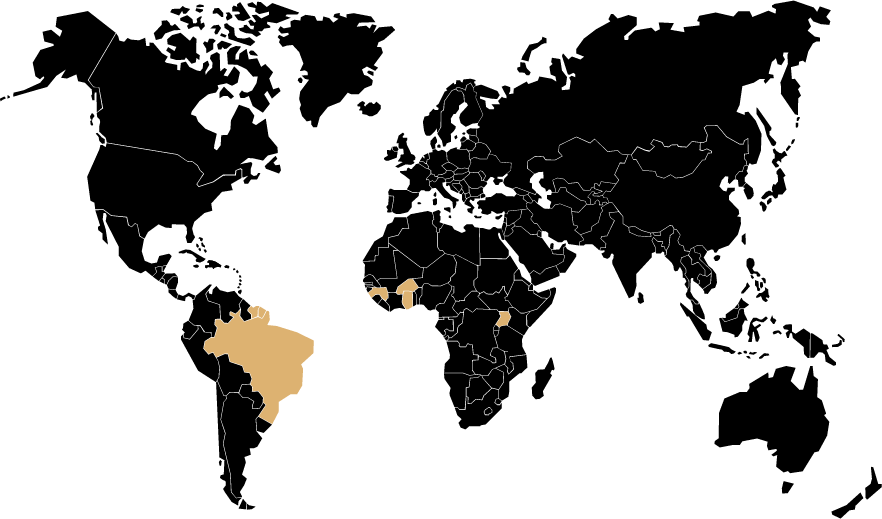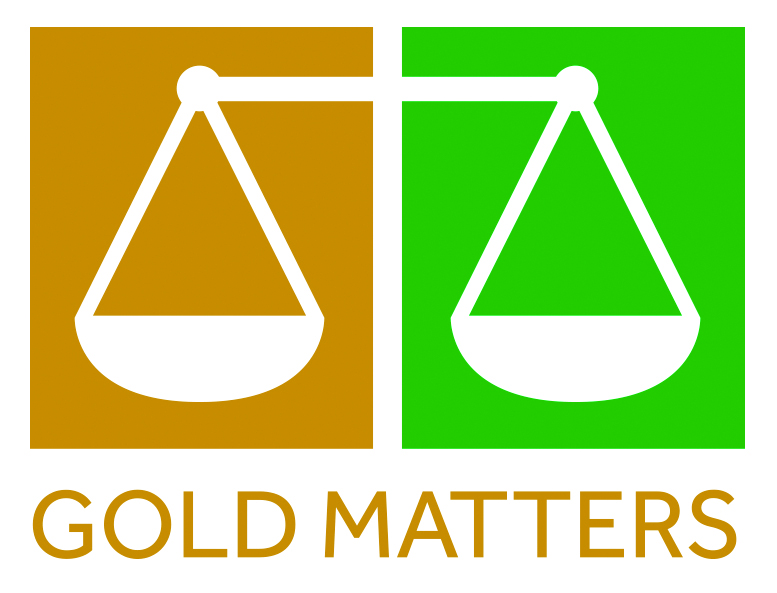Gold Matters is a multi-site project whose actors are spread over six research sites in Africa and South America: Brazil, Guinea Conakry, Burkina Faso, Ghana, Uganda, and Suriname.

BRAZIL
In Northern Mato Grosso, Central Brazil, we examine what sustainability means for mobile small-scale miners who colonize places and communities through the activity of mining. Relations between miners and the state vary; as do interactions with other land users, for agro-business, cattle ranching, and conservation. In this context, we question how gold mining practices are embedded in processes of Amazonian frontier territorialisation, and what this means for thinking on transformations to sustainability within environment, economy and community. And further, we explore how gold dynamics emerge from the materiality of gold, and the impact of mining on governance and human wellbeing.
GUINEA CONAKRY
Gold has a long history in Guinea Conakry. Currently, artisanal mining is experiencing significant technological change, with increased mechanisation and intensified production. The diffusion of accessible technologies such as metal detectors permit individualized forms of mining. The social organisation of production is affected in ways that can exacerbate conflict, or provide incentives for cooperation and knowledge-sharing. In a sector with high population mobility, local preoccupations over sustainability can emerge indirectly in claims over ritual and political control over gold reserves. Entwined with these processes are identity politics and notions of autochthony, with host-migrant relations generating both consensus and conflict. Understanding these processes is important for the elaboration of a transformative approach to sustainability that can acknowledge the complexity of hybrid solutions for mining governance.
BURKINA FASO
Within Burkina Faso, comparative analysis is conducted of regions with different mining trajectories in Southern, Central and Western Burkina. Miners’ mobility has driven the expansion of artisanal gold mining from the central regions of the country to more peripheral areas since the 1980s. Regional comparison permits analysis of how shifts in land use practices are gendered and how these dynamics bring forth different sustainability dimensions, played out in how actors see their futures. In this context, emphasis is placed on gendering issues of well-being, including the embodied effects of working practices on miners’ health, and linkages to future generations. The intertwining of workers’ mobilities, with knowledge circulation and technical innovation – for example the intensification of hard-rock mining, or more recently the use of cyanide in ore processing – are explored.
GHANA
Artisanal and Small-Scale Gold Mining has a long and rich history in Ghana and continues to be a critical economic sector today. However, while ASGM offers opportunities to millions of people, it is also precarious, being subject to fluctuating gold prices, political agendas and the risks from negative environmental and health effects. The question is, then, how do gold mining actors imagine, work towards, and govern secure and sustainable futures? In focusing on the potential for sustainability transformations, emphasis is placed on how ASGM fits into larger histories of mobility for people and technology, linked to identity politics, and spatial organisation. Attention is paid to ´in-depth geopolitics´, namely the interplay of local socio-political contexts, the stage of a mining operation and technologies involved, and the specific characteristics of the gold deposit underground in processes of governing access to and extraction of gold. The mobility of transnational newcomers, including Chinese miners, creates shifts in extraction methods, production relations and territorial access strategies
UGANDA
Emphasis is placed on examining sustainability transformations in relation to interconnecting forms of land use and resource governance. While mine sites are socially heterogeneous, they have historically been associated with less mobility than in our other study sites. This is changing, however, including through the presence of transnational Chinese migrants. These migrants, and the influence of external interventions, such as Fairtrade certified gold production, are stimulating rapid technological transformation, with concomitant change to social dynamics and organisations. Against this context we explore the potential for a transformative approach to sustainability in artisanal and small-scale gold mining.
SURINAME
Suriname is a small country in the northeastern part of the Amazon, which witnessed a substantial increase in small-scale gold mining activities in the 1990s. Here we explore the transformative approach to sustainability together with the notions of territoriality, marginality, mobility and access to the gold. Mining usually takes place in remote parts of states, in the dense marginal areas of tropical rainforest where only Maroons and Amerindians live. The physical and organizational distance from the state control strongly affects the mining activity. Surinamese miners are only a minority: the majority are Brazilian migrants, who have no right to the land and therefore have to pay a percentage of their production for land use. Miners from Brazil cross the borders easily and unnoticed, carrying new technologies and cultures. The rules for competition over access to the gold are the leading motive in this country.
